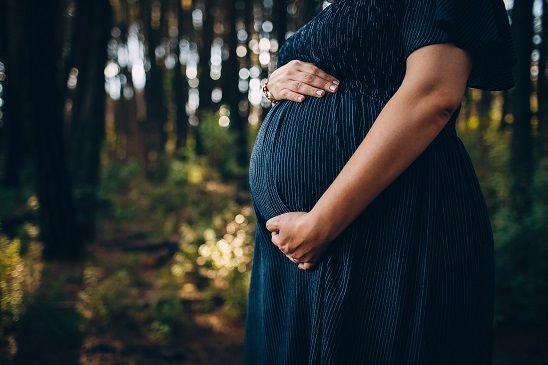Some women just know it, while others realize they are pregnant quite late. When and by what symptoms can you recognize that you are pregnant? We summarize the most common complaints of moms-to-be.
About 10 days after conception, soon after the embryo nests in the uterus, a number of serious changes begin to occur in a woman’s body. And although ultrasound confirmation of pregnancy is possible between its 5th and 10th week, the first symptoms may occur earlier.
Withholding period
The absence of menstruation on the scheduled date is the most common sign that conception has occurred. If bleeding doesn’t occur for consecutive days, it’s a good idea to take a pregnancy test and, preferably, blood tests. Of course, a delayed period can also have causes other than pregnancy. It may be caused by stress, climate change and hormonal disorders.
It’s not PMS
Interestingly, the first symptoms of pregnancy can often be confusingly similar to premenstrual syndrome (PMS). An increase in the size of the uterus can cause pain in the lower abdomen and in the sacrum. Hormonal changes – increases in estrogen, progesterone, cortisol, prolactin, and insulin-like growth factor (HCG) – often cause mood swings and irritability.
Drowsiness and fatigue
Revolutions in the body can also manifest as fatigue and lethargy. This is the time when energy reserves are accumulated for the next months of pregnancy. Progesterone, whose level rises steadily after conception, may also be responsible for the feeling of tiredness.
The breasts hurt
If your breasts are tender and enlarged, this can also be a sign that you are expecting a baby. Gradually, the glandular cells are enlarging, which in some time will produce food for the baby. The appearance of the breasts may also change – the veins on the breasts may become more visible and the nipples may become darker.
Changes in intimate areas
After conception, the cervix dilates, the vagina becomes more circulated and additional mucus appears. This is why some women see an increased amount of vaginal discharge, which is usually creamy in consistency. Due to the increased pressure on the bladder, they also have to visit the toilet more often.
Strange smells and nausea
The sharpening of the sense of smell causes a greater sensitivity to smells. Not always pleasant ???? Some new smells can be disturbing and cause nausea. Gastrointestinal complaints, including nausea and vomiting, are considered a ‘standard’ symptom of pregnancy and often accompany moms-to-be between 5-6 and 14 weeks. Bloating, constipation and heartburn are also not uncommon. This is also ‘thanks’ to progesterone.
Clear evidence
Many women experience these symptoms, but some do not feel the changes caused by pregnancy strongly. Therefore, the best way to confirm that you are expecting a baby is through testing. A home pregnancy test is optimal about 10 days after conception. It detects the presence of HCG in the urine but does not give 100% certainty. It is therefore best to test the level of beta-HCG (chorionic gonadotropin) in the blood. If the result indicates pregnancy, make an appointment with a gynaecologist who will confirm it with an ultrasound.
